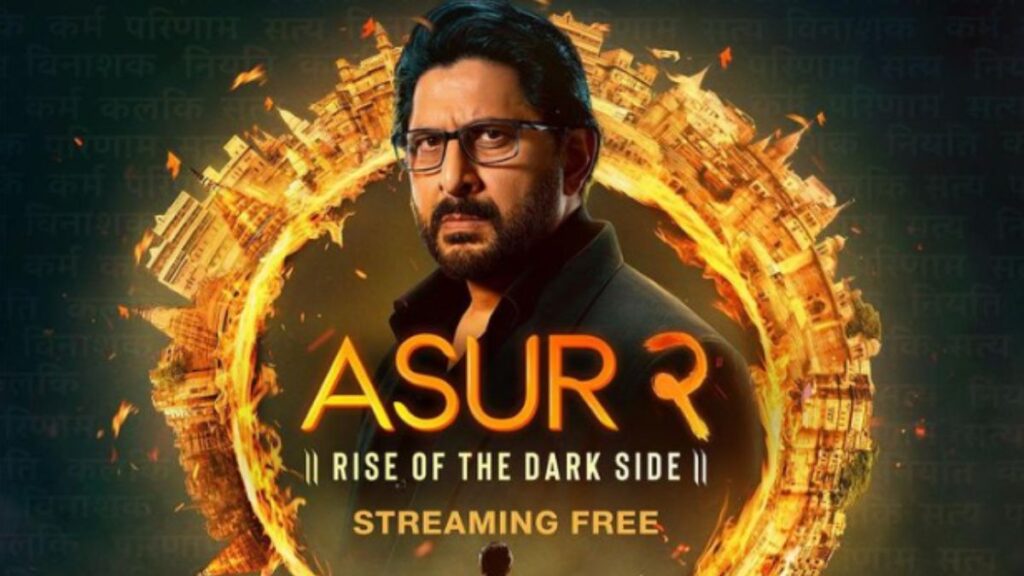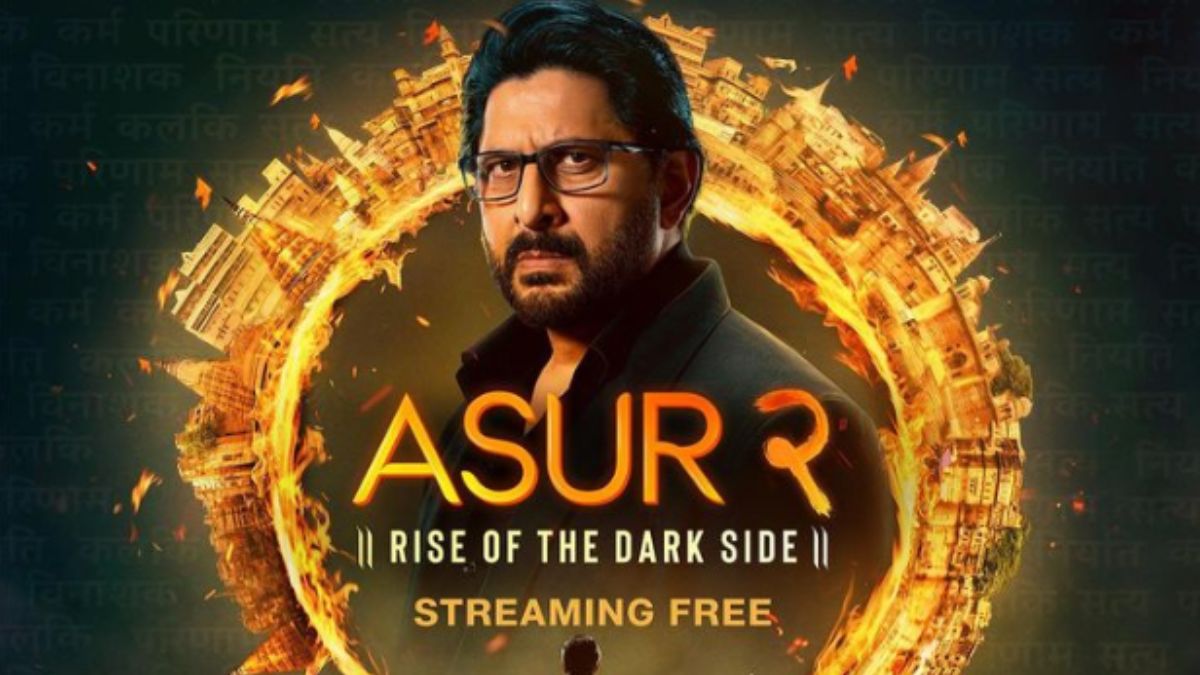Asur Season 2 Cast: Arshad Warsi, Barun Sobti, Riddhi Dogra, Anupriya Goenka
Creator: Gaurav Shukla
Director: Oni Sen
Streaming On: Jio Cinema
Language: Hindi (with subtitles).
Runtime: 8 Episodes, Around 60 Minutes Each.
Synopsis:
Advancing the pursuit of an enigmatic genius manipulating myths and technology through sinister acts of murder and mind control, Asur 2 unfolds with the profound anguish endured by its characters, both in abstract and tangible forms. As the narrative evolves, the battleground expands, with Shubh harnessing the power of technology to execute his meticulously crafted schemes, mirroring the age-old clash between Kali and Kalki from Hindu mythology.
Noteworthy Changes:
Amidst the backdrop of a global pandemic, just as the audience was eager to delve into an overwhelming wave of content, Voot emerged onto the scene with a show that didn’t receive the marketing push it deserved. Nevertheless, it gained significant traction solely through word-of-mouth promotion. The extraordinary brilliance in its writing shattered not only genre conventions but also storytelling patterns, making Asur a truly distinctive and invincible experiment.
With Asur Season 2 now shifting its base to Jio Cinema, there are also changes in the writing team. While Abhijeet Khuman continues to collaborate with Gaurav Shukla, Niren Bhatt and Pranay Patwardhan have been replaced by Suraj Gianani. As Asur 2 commences, it introduces a plot that goes beyond the pursuit of a serial killer, focusing on a mastermind plotting to unleash devastation upon the entire country in multiple ways. This shift is palpable in the narrative voice, offering both positive and negative aspects.
Let’s start with the positives. Asur, as a concept, is both rich and daring, seamlessly blending reality with mythology to present a story reminiscent of the tales from ancient times. It engages the audience as active participants, allowing them to choose which side of the moral spectrum they align with. This captivating storyline goes beyond a mere cat-and-mouse chase between police officers and a shadowy figure. Instead, it reveals that the shadow has spawned several accomplices who are running the show alongside him. In Season 2, we witness the convergence of mythology, technology, and noir, resulting in an intriguing viewing experience.
Credit must be given to Shukla and his team for their ability to intricately weave complexity into the narrative and gradually untangle its intricate threads. They immerse the audience deeply into the lives of the protagonists, withholding crucial information about the antagonist until he claims yet another victim. This approach effectively develops the villain’s character. Additionally, the casting of an unconventional actor for the role adds to the sense of dread, as it’s not his face but the idea of him that is meant to evoke fear.
Discussing Asur without divulging spoilers becomes increasingly challenging, so I’ll refrain from revealing more.
Character Transformations:
In season 2, Barun Sobti undergoes a remarkable transformation, not just mentally but also physically. His portrayal becomes messier, subtly reflecting his character’s evolution. The actor’s meticulous efforts to bring authenticity to his role shine through effortlessly. It’s intriguing how these talented individuals, including the brilliant Siddhant Gupta from Jubilee, have been overlooked despite their long-standing presence in the industry.
Arshad Warsi delivers a captivating performance without forcefully emphasizing his role as a cop. Instead, he opts for simplicity, which works remarkably well. Although the script occasionally falls into repetitiveness to build up to a significant moment by the end, Warsi’s portrayal keeps the audience invested throughout.
Both Riddhi Dogra and Anupriya Goenka have pivotal roles that greatly impact the story. However, the script seems to forget the attraction between Dogra’s Nushrat and Sobti’s Nikhil, resulting in the loss of their charming dynamic.
Finally, Meiyang Chang receives recognition for a role that goes beyond his ethnicity, color, or appearance. The actor seizes the opportunity to prove his talent, showcasing immense potential for growth despite still having a long way to go.

Conclusion:
The inclusion of new writers in Asur significantly impacts the essence of the show. While it remains watchable, the meticulous attention to detail that characterized the first season is noticeably absent. For instance, the dynamic between Nikhil and Nushrat is forgotten entirely in season 2, along with the plot surrounding the missing fingers. Wasn’t this detail crucial to the story?
There is a section in Asur 2 that feels disjointed and out of place. The concept of victims being given remotes with red and blue buttons, forcing them to make choices, becomes difficult to believe and connect with the overall content of the show. Although it shapes a character and elevates their god-like status, they are not developed sufficiently for viewers to root for them in the upcoming season.
Asur lacks the charm that was brought forth by the mention of mythological tales in the first season. The Tumbbad-inspired storytelling takes a backseat to make room for the introduction of technology, but one can’t help but wonder if the old blueprint would have still been capable of delivering a compelling narrative.
